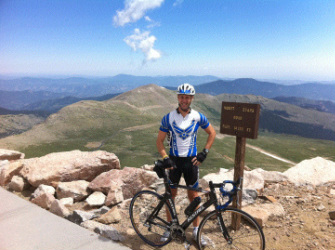
As a coach, I'm often asked this time of year after the dust settles, “Now what?” I often turn it around and ask my athletes the same question as the first step in developing an Annual Training Plan (ATP). What I've found to be the best start is to distance the athlete a few weeks from their last BIG race of the year then broach the subject. This gives you a more deliberate response then the emotional one the day after a late-season grueling race. BEWARE...most type-A triathletes are gonna go into workout withdrawals and start aimlessly wandering around the track or doing the back float in the pool! Where is my TrainingPeaks workout IV drip??!!
There are many critical questions needed to be answered in the developing of an Annual Training Plan.
- Goals: Did you achieve your previous goals? What went right? What went wrong? Injuries? Motivation (or lack of)? Weaknesses needed addressed?
- Future Goals and Training Objectives: What do we do the same? Differently? What training do we need to
work on? Where do you see yourself in 1, 3 or 5 years?
- Races: What types of races are you looking for that would get more bang for your buck? Are you good at hilly courses? Better keep it flat? Sea-level? Are you in need of that illusive podium spot? Need a championship race for your resume? Keep it short this year? Best Kona qualifier? Have a favorite race you love doing by your mother-in-law’s house to save cost?
Once you get these questions answered and put in pencil the dates of the races, then it’s time to
prioritize and build the plan. TrainingPeaks makes this step unbelievably easy with the ATP wizard ™. Start/end dates, number of annual hours, and race dates are the basic parameters needed. I will save the types of periodization and Annual Training Plans debate for another blog, however the TrainingPeaks ATP wizard ™ builds a 7-day cycle plan that is the typical Prep, Base, Build, Peak, Recover ATP. Once I build the plan with my athlete, I go over the plan with the athlete and we look it over and see if there were any things we left out (vacations, career changes, school) that could alter how we proceed with the year.
Remember to take a good look at the training blocks and adjust according to what type of athlete you are coaching. Not every athlete should be prescribed the same ATP, but it makes a great baseline. Also, once you start developing a plan, don’t forget test sets in each discipline to adjust your training accordingly from the data the test set gives you. Also add extra training blocks for your athlete's weakness and don't forget to include core strength and conditioning!
Happy planning!
There are many critical questions needed to be answered in the developing of an Annual Training Plan.
- Goals: Did you achieve your previous goals? What went right? What went wrong? Injuries? Motivation (or lack of)? Weaknesses needed addressed?
- Future Goals and Training Objectives: What do we do the same? Differently? What training do we need to
work on? Where do you see yourself in 1, 3 or 5 years?
- Races: What types of races are you looking for that would get more bang for your buck? Are you good at hilly courses? Better keep it flat? Sea-level? Are you in need of that illusive podium spot? Need a championship race for your resume? Keep it short this year? Best Kona qualifier? Have a favorite race you love doing by your mother-in-law’s house to save cost?
Once you get these questions answered and put in pencil the dates of the races, then it’s time to
prioritize and build the plan. TrainingPeaks makes this step unbelievably easy with the ATP wizard ™. Start/end dates, number of annual hours, and race dates are the basic parameters needed. I will save the types of periodization and Annual Training Plans debate for another blog, however the TrainingPeaks ATP wizard ™ builds a 7-day cycle plan that is the typical Prep, Base, Build, Peak, Recover ATP. Once I build the plan with my athlete, I go over the plan with the athlete and we look it over and see if there were any things we left out (vacations, career changes, school) that could alter how we proceed with the year.
Remember to take a good look at the training blocks and adjust according to what type of athlete you are coaching. Not every athlete should be prescribed the same ATP, but it makes a great baseline. Also, once you start developing a plan, don’t forget test sets in each discipline to adjust your training accordingly from the data the test set gives you. Also add extra training blocks for your athlete's weakness and don't forget to include core strength and conditioning!
Happy planning!

 RSS Feed
RSS Feed